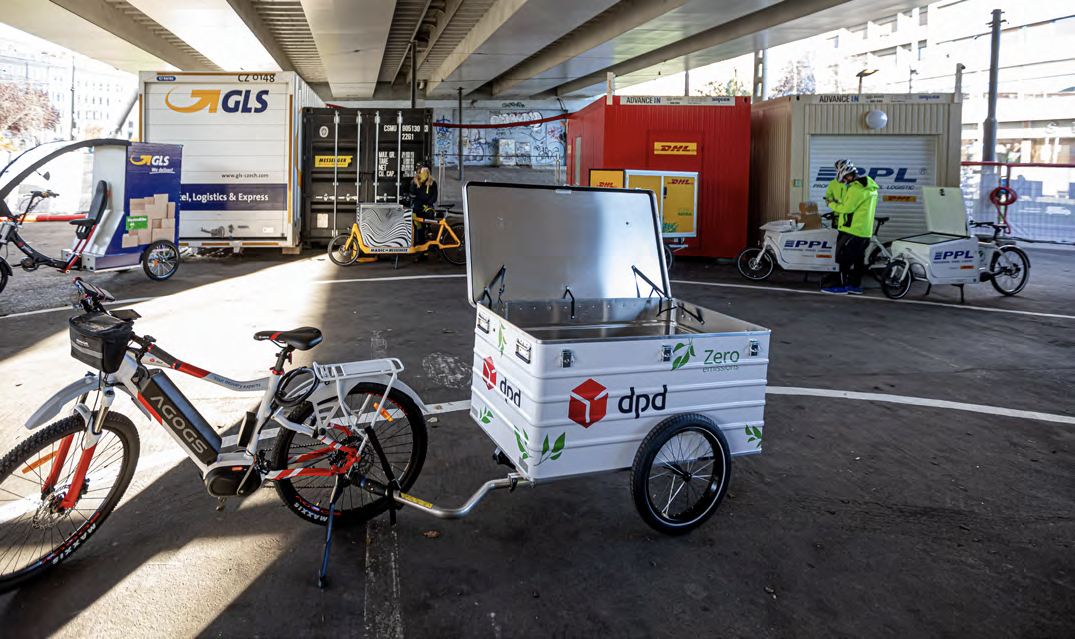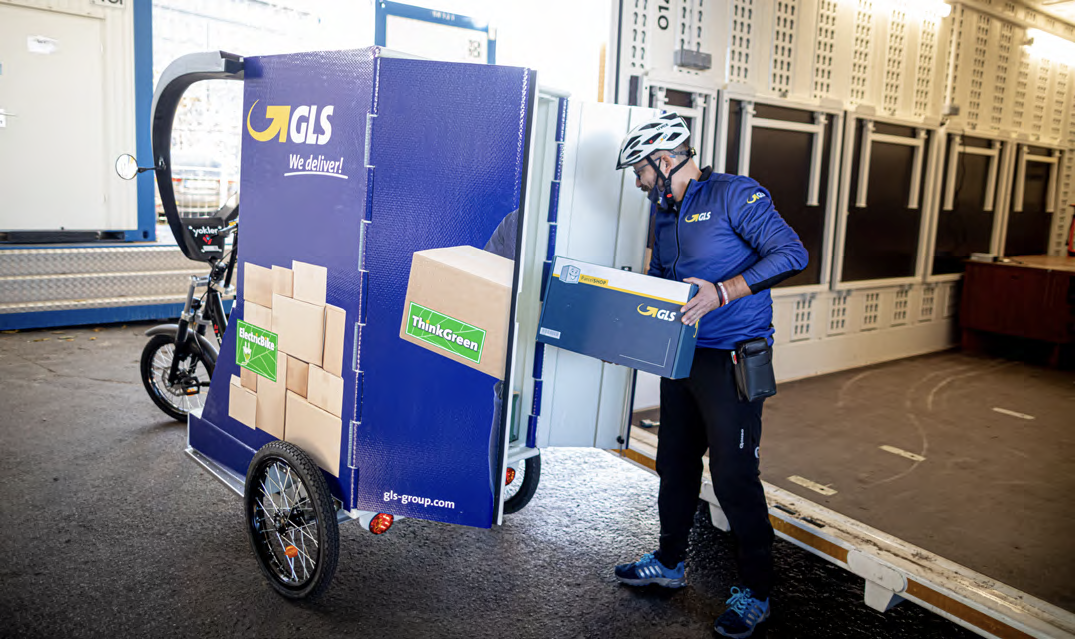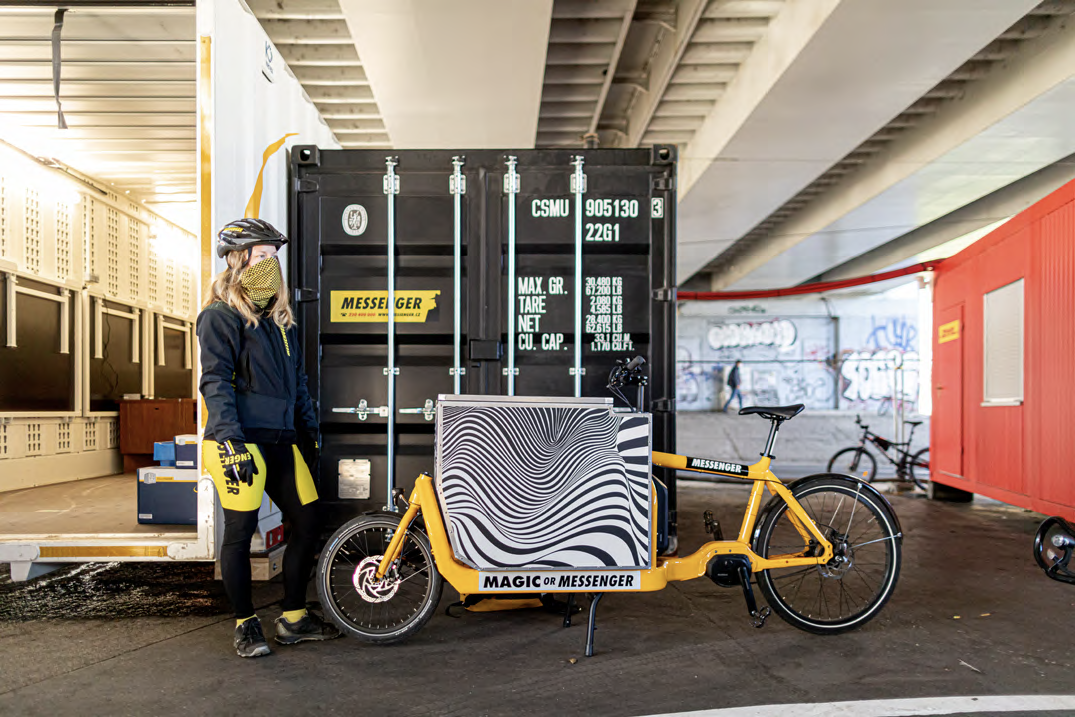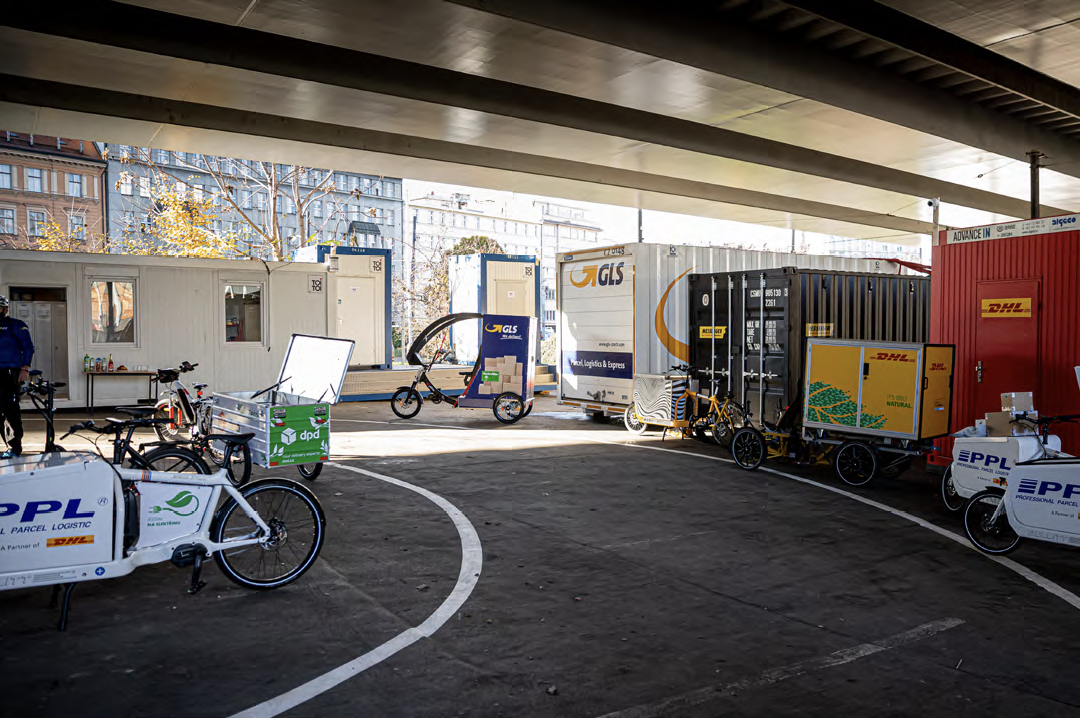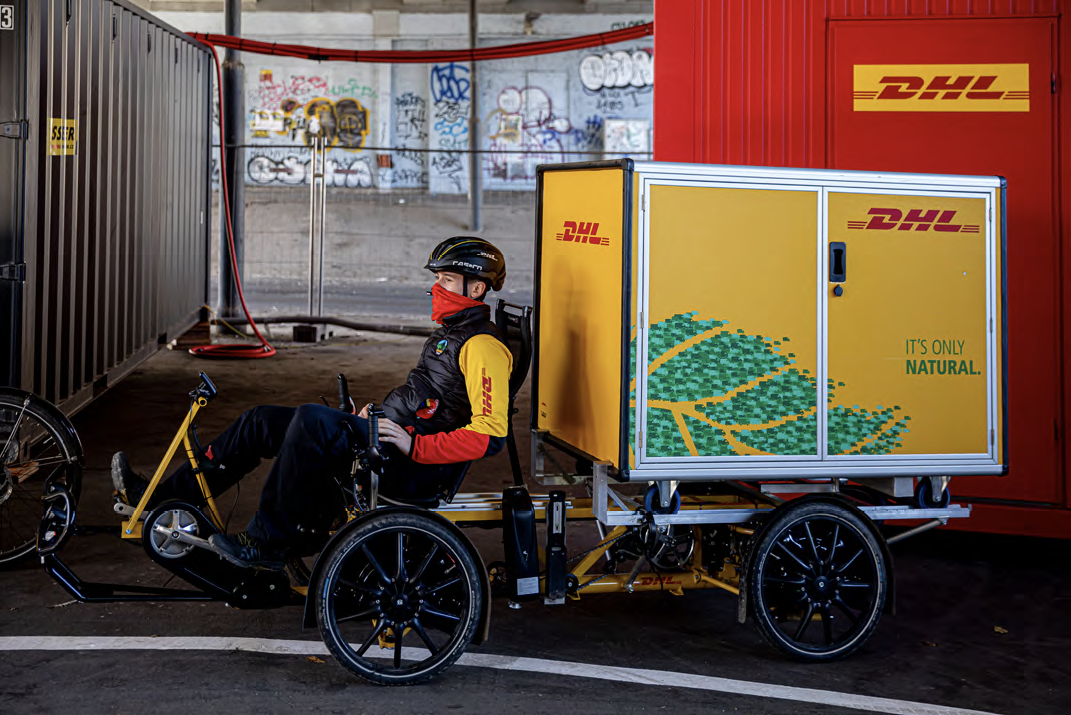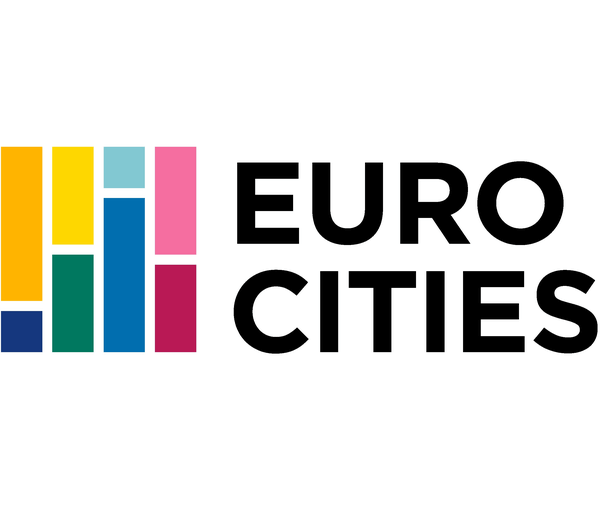City
Prague
Main actors
Local Government
Project area
Neighborhood or district
Duration
Ongoing since 2020
Improving Prague’s environment one delivery at a time
In June 2020, the City of Prague, recognizing the rapidly growing volume of deliveries being made by transport companies due to the COVID-19 lockdown, coupled with the city administrations longer-term efforts to relieve traffic in the city centre, approved the implementation of a pilot cycle depot. The bike depot is located in the heart of the city and serves as a hub for the delivery of packages within the city centre by cargo bike. Five months after this approval, the pilot depot began operating on the site of a City-owned parking lot, under an overpass of the city’s arterial road, making it easily accessible for cargo coming in from the city outskirts. Eight logistics companies have joined the pilot, and more than 6,000 parcels are being delivered by bike each month, with the potential to double this number in the future. Since the project’s inception in November 2020, cargo bike couriers have travelled over 17,000 kilometers that would have been covered by vehicles.
Originally published by EUROCITIES, the network of 130 European cities: Link
This project was shortlisted for the Eurocities Awards in 2021 in the following category: zero pollution
Eurocities Awards
This project was shortlisted for the 'Eurocities Awards' in 2021 in the following category: Zero pollution.
External links / documents
On Map
The Map will be displayed after accepting cookie policy
